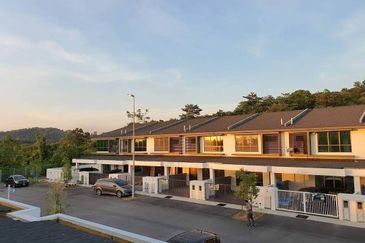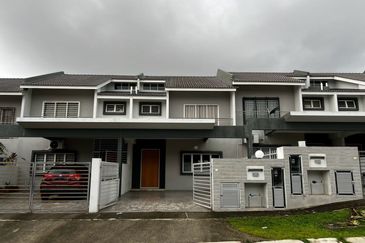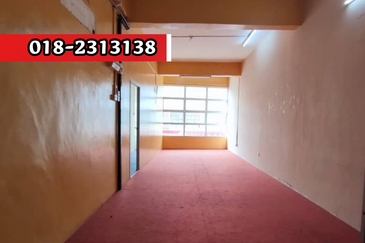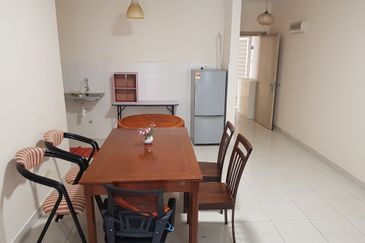
KUALA LUMPUR (Oct 14): If one looks at the recently tabled Budget 2020 from the eyes of millennials and those of the Z generation or Gen Z, as they are called, there appears to be a decent chunk dedicated to them, so much so that Youth and Sports Minister Syed Saddiq Syed Abdul Rahman has termed it a “2020 Youth Budget”.
In particular, the youth minister is of the view that it is capable of driving positive development for youths, especially in providing quality employment opportunities, with a special RM6.5 billion allocation to create 350,000 employment opportunities next year.
Millennials are defined as those who are between 22 and 37 years of age, while Gen Z are aged between four and 24. Here’s a look at some of the things in Budget 2020 that are crafted with them in mind:
Graduates@Work and Apprentice@Work
Graduates@Work is designed specifically for the hiring of graduates who have been unemployed for more than a year. Those who have secured work will receive a wage incentive of RM500 per month. Employers who take them on will in turn get up to RM300 per month for each new hire. This incentive scheme will last for two years.
Apprentice@Work, on the other hand, is a technical and vocational education and training (TVET) incentive in the form of an additional RM100 per month — on top of existing allowance for trainees on apprenticeships — to encourage more youths to enter TVET courses.
In addition, the double tax deduction currently given to companies undertaking the Structured Internship Programme approved by Talent Corp Malaysia Bhd will be expanded to include students from all academic fields rather than just engineering and technology.
Introducing govt-supported rent-to-own scheme, extending Youth Housing Scheme
Cognisant that affordable housing is a prominent issue among youths, the government plans to collaborate with financial institutions to introduce a rent-to-own financing scheme to help those who are unable to afford the initial 10% deposit, or get financing to buy their first home.
Through this scheme, financial institutions will provide financing of up to RM10 billion, which the government will support by guaranteeing 30% or RM3 billion of that. The scheme only applies to the purchase of properties priced not more than RM500,000.
Under this scheme, the applicant will rent the property for up to five years, and he or she will have the option to buy the house after staying there for a year based on the price fixed at the time the tenancy agreement is signed.
The government will also provide stamp duty exemptions on the instruments of transfer between the developer and financial institution, as well as those between financial institutions and the buyer.
The government will also extend the Youth Housing Scheme that is administered by Bank Simpanan Nasional from Jan 1, 2020 to Dec 31, 2021, to assist youths in purchasing their first home. The scheme also offers a 10% loan guarantee through Cagamas to enable borrowers to get full financing and monthly instalment assistance of RM200 for the first two years, limited to the first 10,000 home units.
Mainstreaming TVET
The government is keen on further developing youths’ skills and plans to spend RM5.9 billion on TVET in 2020, up from RM5.7 billion this year.
Among others, the funding will be used to strengthen public-private collaborations on the TVET programme through state skills development centres (SSDCs) by pumping in RM20 million via Perbadanan Tabung Pembangunan Kemahiran to fund SSDCs in conducting TVET courses.
The money will also be used to promote greater industry collaboration at public skills training institutions by allowing them to use surplus revenue generated from TVET courses to pay for expenses such as equipment upgrades and hiring industry trainers.
The government will also provide a matching grant fund of RM20 million to support customised TVET courses undertaken in collaboration with industries. Moreover, it will expand pathways for TVET graduates to pursue further studies and secure jobs. In particular, the Malaysian Technical University Network of universities will offer degree courses for vocational college trainees.
At the same time, the Human Resources Development Fund (HRDF) will collaborate with industries to provide TVET training linked to employment opportunities, under which the government will provide RM30 million to train 3,000 youths from low-income households.
To help prison inmates secure employment opportunities in the future, the government will allocate RM20 million to expand skills training and programmes to meet national TVET standards for inmates, in areas such as metal works and carpentry.
Upskilling for IR4.0
The Employees Provident Fund (EPF) will expand the scope of its education withdrawal for qualifications attained at certificate level, particularly for those that are in line with Malaysia’s Industry 4.0 (IR4.0) aspirations, to encourage adult learning.
The EPF is also looking to expand this withdrawal to include members’ parents and spouse. In addition, the government will allocate RM20 million to be matched by another RM20 million from HRDF towards encouraging working adults to undertake professional certification examinations in fields relating to IR4.0.
Meanwhile, education institutions under Majilis Amanah Rakyat — such as Maktab Rendah Sains Mara, Kolej GiatMara and Universiti Kuala Lumpur — will be allocated RM1.3 billion in 2020, and a further RM2 billion for student loans that will benefit 50,000 students. On top of that, RM192 million will be set aside for professional certification programmes under Yayasan Peneraju Pendidikan Bumiputera.
An eye on STEM
To encourage more students to join the fields of science, technology, engineering and mathematics (STEM), the government is allocating RM11 million to the ministry of education and the ministry of energy, science, technology, environment and climate change for such initiatives.
And with an eye on practical application of knowledge learned, the government will promote the commercialisation of research and development from the public sector and research universities, beginning with the University of Malaya, which will establish a one-stop innovation office to transform intellectural property into commercially exploitable opportunities.
Building a digital society
Recognising that digital content creates economic value, the government will allocate RM20 million to the Malaysia Digital Economy Corp (MDEC) to grow local champions in creating digital content, especially in e-games, animation and digital arts. It also plans to spend RM20 million more to grow e-sports.
That aside, the government plans to continue to provide RM10 million to MDEC to train micro-digital entrepreneurs and technologists to leverage e-Marketplaces and social media platforms to sell their products.
To boost e-wallet adoption, the government will offer a one-time RM30 digital stimulus to Malaysians aged 18 and above with annual income of less than RM100,000. This one-time digital stimulus per person can be redeemed and used between Jan 1, 2020 and Feb 29, 2020. The user just need to have an identity-verified e-wallet account with selected service providers.
Nurturing leadership, athletic potential
The government will set aside RM138 million for youth development programmes like Youth Power Club and Malaysia Future Leaders School and volunteerism initiatives.
It also plans to spend RM299 to implement the Sports for All Programme, including rehabilitating and upgrading of sports facilities throughout the country, and RM179 million to prepare for international sporting events like the Tokyo Olympics 2020 and Hanoi Sea Games 2021. It will also give RM45 million to the National Football Development Programme. And specially on promoting and developing future sportswomen, it plans to spend RM10 million.
RM113m for environmental preservation efforts
While environment and climate change issues are not youth-centred, they are close to the heart of many youths today.
To preserve Malaysia’s forests and natural biodiversity, the government is allocating RM48 million, of which RM10 million will be used as matching grant against private sector contributions towards such initiatives, including efforts to support the Central Forest Spine and Heart of Borneo, and to rehabilitate and restore degraded forests.
The government also plans to set aside RM15 million for the Malaysian Conservation Alliance for Tigers, the Sepilok Orangutan Rehabilitation Centre and other such non-governmental organisations, besides spending RM20 million to employ more forest rangers to protect our flora and fauna.
A further RM30 million will be set aside to raise the capability and capacity of the departments of environment and chemistry to tackle environmental pollutions.
What do the youth think?
Melissa Tiong, 25, said the government’s Women@Work initiative, while not geared especially towards youths, is most positive for her. “If I decide to have children in the future, I will want to be able to return to work to support the family and it is reassuring to know that the government is fully supportive and encouraging of that,” Tiong said.
Under the Women@Work initiative, the government seeks to create 33,000 job opportunities a year for women who have stopped working for a year or more and are aged between 30 and 50 years old. It also provides a wage incentive for returning women workers, of RM500 per month for two years, and a corresponding hiring incentive for employers of up to RM300 per month.
To Shazni Ong, 28, the budget’s measures for youth homeownership are promising. “The RM30 one-off payment to get on e-wallet platforms is also interesting, as I don’t have one of those yet,” he said.
Meanwhile, Nicole Ng, 20, is glad to see a segment of the budget dedicated to environmental sustainability, though she said more needs to be done, especially in curbing single-use plastics. “Like [teen environmental activist] Greta Thunberg says, ‘the eyes of all future generations are upon you’. Our leaders cannot fail to act. The future is now.”
The above are just the views of some millennials who spoke to The Edge Financial Daily. With the voting age now lowered to 18, only time will tell if these measures are good enough for them.
This article first appeared in The Edge Financial Daily, on Oct 14, 2019.
TOP PICKS BY EDGEPROP

De Cendana Apartment
Setia Alam/Alam Nusantara, Selangor

Bandar Baru Sri Petaling
Bandar Baru Sri Petaling, Kuala Lumpur

Tropicana Aman Bayan Residences
Telok Panglima Garang, Selangor

Tropicana Aman Bayan Residences
Telok Panglima Garang, Selangor





















